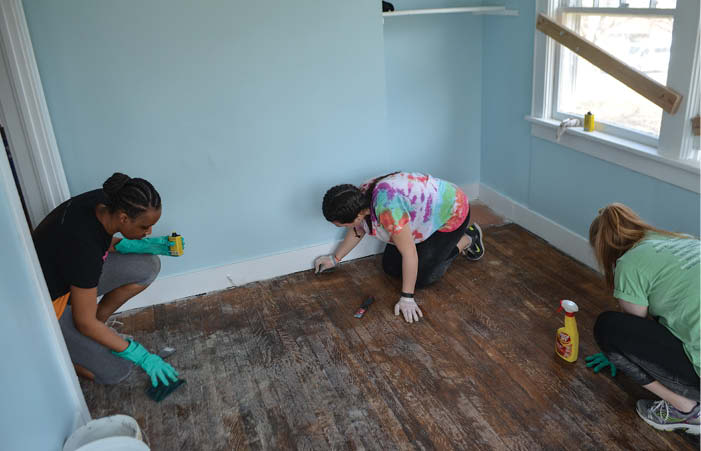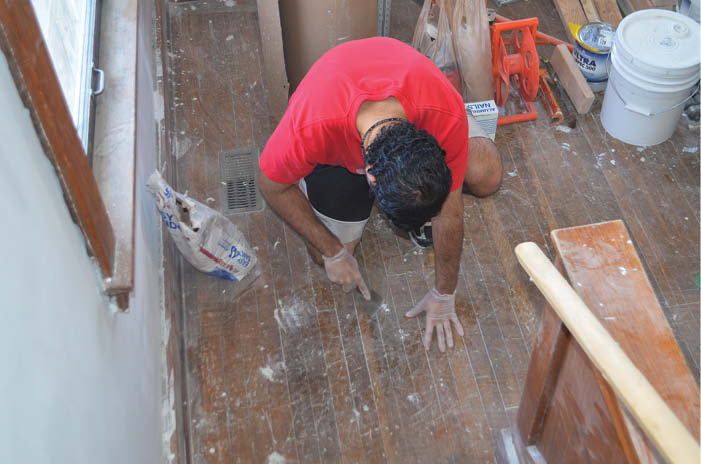
By Joe Jarosz
Northeast News
March 16, 2016
KANSAS CITY, Missouri — Not everyone spends their spring break on the beach.
Some spend their time helping those in need.
Nine students from James Madison University in Harrisonburg, Va., spent last week at Sheffield Place for spring break. They cleaned and helped rehabilitate a transitional house the organization recently purchased for one of its clients. The students also spent time working with children in the organization’s child program.
This marked the fifth renovation by the agency in their plan to purchase and renovate a total of 10 over the next 15 months. Shelly Anderson, program assistant with Sheffield Place, said they are in the process of closing on their sixth house and will begin the rehabilitation process soon after. The organization already has a family in mind for when that home is ready.
Sheffield Place is a treatment and transitional living program for homeless mothers and their children. Founded in 1991 as a community response to the increasing incidence of family homelessness, Sheffield Place serves 68 families each year at its facility. Families may stay at the shelter for an average of six months where they receive intensive mental health services, case management, and life skills training. Once families complete the program and transition to permanent housing in the community, they continue to receive case management and other supportive services for as long as required through the Aftercare Program, which serves up to 30 families each year.
Anderson said they rely on volunteers, not just from Kansas City, to help them rehabilitate the homes they purchase. When there’s no helping hand, she said staff does a lot of work, as well.
Sarah Boelsche, a sophomore at James Madison University, said the group has definitely learned a lot about homelessness, especially in Kansas City. She noted that their school is in a rural area, and students don’t have many opportunities to interact with homeless people in the area. It was a culture shock to some.
“We got a chance to talk to a couple mothers,” Boelsche said. “They told us their stories, which was really interesting to hear their perspective. We’ve been working closely with their kids, as well, and formed relationships with them, too.”
Boelsche added that after a day of work — which usually begins at 10 a.m. and ends with them helping with the children’s program in the evening — the students spend time reflecting on the day’s work.
“We’re sad to leave before the work is finished,” Boelsche said, adding the students would have loved to have seen the look on the recipient’s face when they walk through the doors of their new home.




















